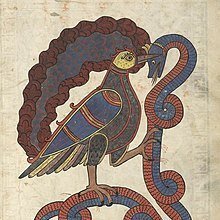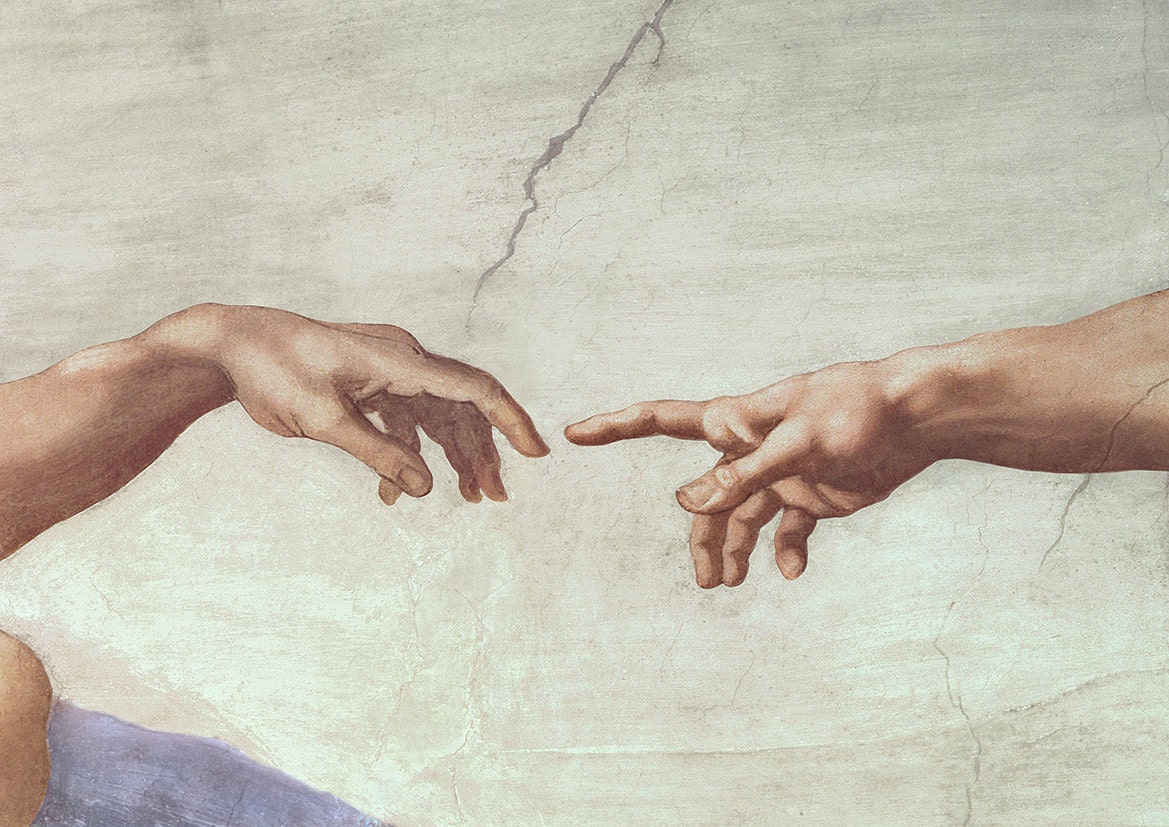-
Content count
1,394 -
Joined
-
Last visited
-
Days Won
7
Everything posted by Sir Darius the Clairvoyent
-
I have a sense it is. And the forum seems to agree. Not that I lay around a lot, but how about frequent one night stands? Mastrubation?
-

On esotericism: Why the secracy?
Sir Darius the Clairvoyent posted a topic in Esoteric and Occult Discussion
And why tell people you have secret knowledge? Doesnt that defeat the purpose? Also, I often hear it talked about as western, is that the case? And when did Egypt become western? -

What was the beginning and cause for esoteric societies?
Sir Darius the Clairvoyent posted a topic in Esoteric and Occult Discussion
Self explanatory : ) -
I realize this is below many of you ( ) but I’d like to chat a little if it’s of interrelated to you. Some topics could be: mbappes form, what on earth is happening to City and will united ever get its s together? But as all good convos it is open format: bring up whatever you’d like.
-
I assume most of you are not familiar with it, due to it not existing in the English language (more on that below), but many languages has both or/either two ways to pronounce the letter R. English only has rolling R. The other is scratching R, about as good of a translation I could find. It is both very direct translation and also captures it very well. The sound is more gutteral. The history of this way of speech is very curious. I don’t buy it, but at least it is a story: So basically so basically we have been apeing after some bourgarise Parisian women with a speech impairment for the last 400 years trying to sound important. I mean, not impossible but… oh well. The thing about this R, is that it is belived to be easier for children to learn. So once it got rolling it won’t stop until it has all of humanity speaking like French aristocracy. But but but, you know how you kind… glue the consonant comming after R into on super letter in English? I don’t, but you are far from alone. Retroflex, I believe is the technical term. So no dear English speaking friend, the Parisian speech is not comming for you: Orange: rolling R Purple: scratching R Green/British and Irish English it sees: area where the r is not distinct after a vowel. In the dark green areas it is left out all together. personally I believe it sounds better with scratching in my language (don’t you dear suggest it is due to me useing it, allthough the rolling peasants would say the opposite … but you know, what matter peasants? Good night, good folk 💤🌙
-
Sure, but I am not judging a whole people. A random jew is no more responsible for acts done by a sub group of the faith then I am for manifest destiny.
-
@Cobie I see that by responding with emojis you are unable to. That doesn’t give me much confidence to discuss this with you. But that’s okay, you have said bye to me a million times, but you keep comming back. Every time.
-
And cobie, when you respond, try to use words and reason. I am open to hearing what you believe, but I don’t care much about manipulative tactics.
-
I think it is time to breath with the stomach and relax. Dark shit happens EVERYWHERE by every culture. It does take different forms, however. That Jews has an enourmous, disaportinate economical power is undeniable. 0.02% of the world population, half the billionaires. Why cobie, why
-
Before I get banned, allow me to be a little bit corny: Aleksandr Solzhenitsyn, The Gulag Archipelago 1918–1956 of this, I believe there is no doubt.
-
I have no clue why, any advice?
-
I have no clue why, any advice?
-
I have no clue why, any advice?
-
Another invention by Jews: Here is the translated text to English from the OCR-processed content: Text from Image 1: “The reality is that there is a very close connection. A letter that was once discovered (and reproduced in Revue Paris 35, II p. 574) provides, in a nutshell, an explanation for this apparent contradiction. The letter is written by a Jew: Baruch Levy to a Jew: Karl Marx, and it states: ‘The Jewish people will, as a whole, be their own Messiah. They will achieve their dominance over the world through the mixing of races among other peoples, through the abolition of borders, through the destruction of monarchy, which is the support of individualism, and through…’” Text from Image 2: “…the establishment of a world republic in which the Jews will hold civic rights. In this new world order, the sons of Israel, scattered throughout the world, will bring the working masses under their leadership. The governance of the various peoples that will form the world republic will, through the victory of the proletariat, fall into the hands of the Jews without significant difficulty. Private property will then be abolished by the Jewish rulers, and all property will belong to the state and be managed by the Jewish rulers. Thus, the promise in the Talmud will be fulfilled, and the Jews, when the time of the Messiah arrives, will come into possession of power over all the world’s property.’” Not to mention the Russian revolution. How noble… edit: I did not provide the source as it is illegal information. The only mention of it you’ll find online is from a Jewish advocacy group «debunking» it. Judge for yourself: https://www.jta.org/archive/j-d-b-news-letter-219 That said, the Jewish connection to the Russian revolution is mainstream. Even Churchill says so: https://archive.org/details/ZionismVsBolshevismByWinstonChurchill
-
I mean, you are not helping you’re cause. You are no more worthy than an Eskimo, Norwegian or Congolese person. How you manage to take offense to that speaks volumes.
-

Psychotic behavior resulting from occult study.
Sir Darius the Clairvoyent replied to Cadcam's topic in Esoteric and Occult Discussion
Come ooon , I’ll pm you -

Psychotic behavior resulting from occult study.
Sir Darius the Clairvoyent replied to Cadcam's topic in Esoteric and Occult Discussion
You’re daobum nemesis. -
No, ostehøvel: And what might honestly be labeled a candidate for the strangest food ever eaten by man, pølse i vaffel: (Yes it’s real)
-
No, I pardon. I was speaking in general. But when you got this chosen thing, some not very appealing doctrine on foreigners and have been living in a world that has been very hard to you, I think it is only natural to go into this sort of mindset. I was not suggesting your friend saw you as that. But when I think about how a Jew can get interest free loans in my home country and globally, based on his etnicity, and EVERYBODY else has to pay 20%, is it strange get angry? The whole apartheid genocide going on as well. If you’re a Jew, you are a citizen. If not, you belong in a concentration camp.
-
I pay my respects. No but really, it was a nice read. We invented the paperclip and a handy tool for cutting cheese, as well as skiing IMG_3886.webp
-
I believe He has returneth. Jesus Appears to Thomas 24 Now Thomas (also known as Didymus[a]), one of the Twelve, was not with the disciples when Jesus came. 25 So the other disciples told him, “We have seen the Lord!” But he said to them, “Unless I see the nail marks in his hands and put my finger where the nails were, and put my hand into his side, I will not believe.” 26 A week later his disciples were in the house again, and Thomas was with them. Though the doors were locked, Jesus came and stood among them and said, “Peace be with you!”27 Then he said to Thomas, “Put your finger here; see my hands. Reach out your hand and put it into my side. Stop doubting and believe.” 28 Thomas said to him, “My Lord and my God!” 29 Then Jesus told him, “Because you have seen me, you have believed; blessed are those who have not seen and yet have believed.”
-
The greater question is why do they overachieve so much? I believe it is in large part heter iska and in/out group thinking taken to the extreme of extremes that makes it possible. If you not Jewish, you are dog shit goyem.
-
Be careful with pattern recognition, it is racist I’ve been told. Remember to say that not aaaaall Jews invented general relativity
-

Psychotic behavior resulting from occult study.
Sir Darius the Clairvoyent replied to Cadcam's topic in Esoteric and Occult Discussion
I mean, sometimes you gotta tell people clearly they are out of line. First by hinting etc. but if you get nowhere… I mean, I you got a little angry when lectured in Hebrew, didn’t you ahaha. But I don’t want to hijack this thread, as it is a very personal one. Wish you the best @Cadcam -

Psychotic behavior resulting from occult study.
Sir Darius the Clairvoyent replied to Cadcam's topic in Esoteric and Occult Discussion
But at anger has it place, no?



